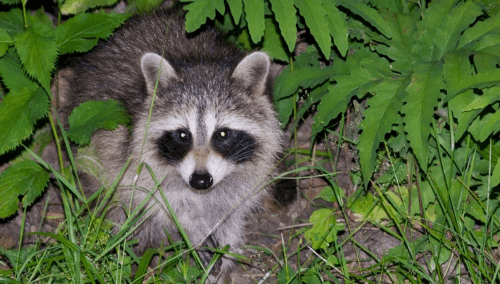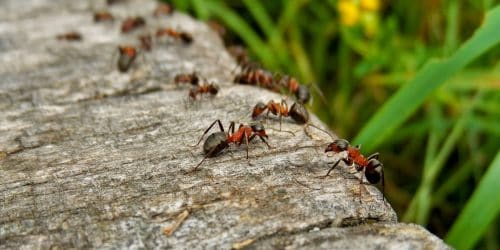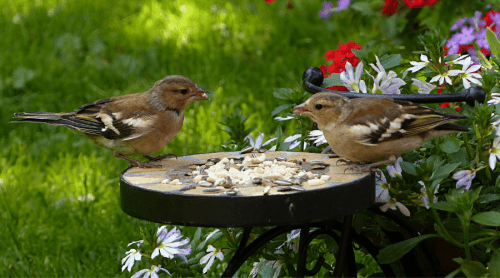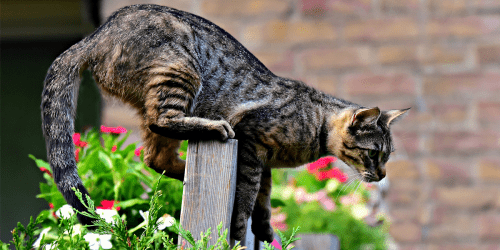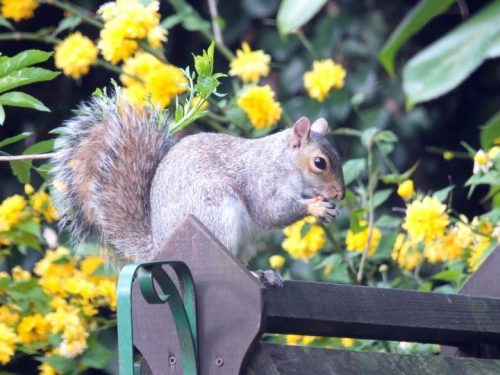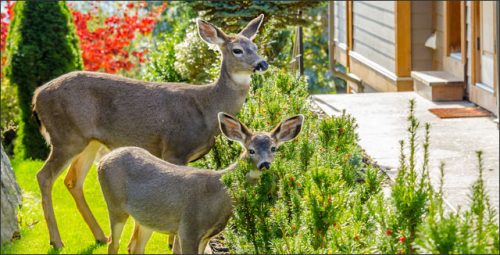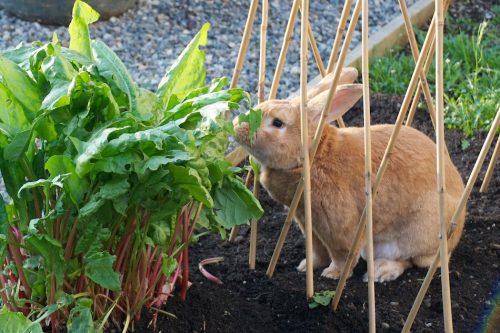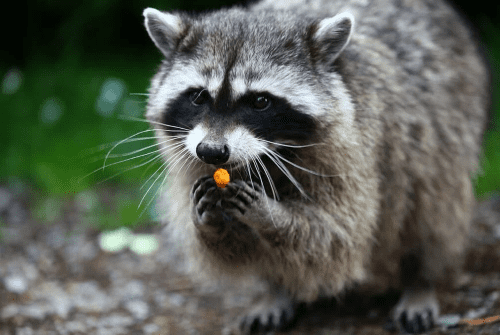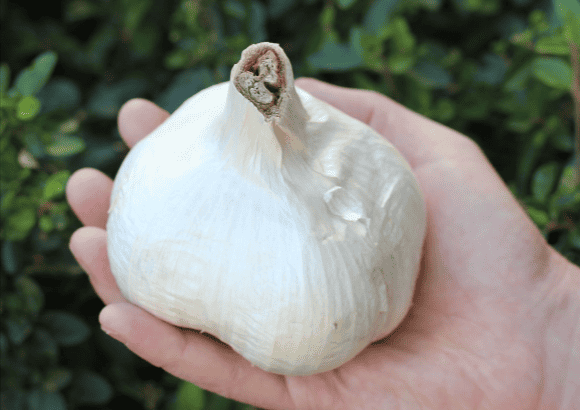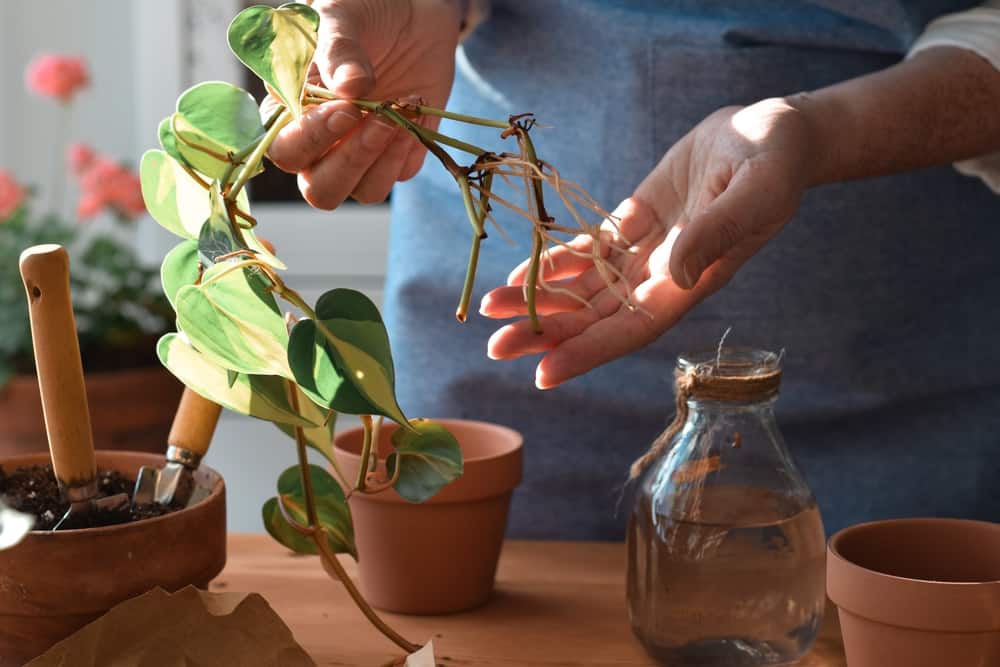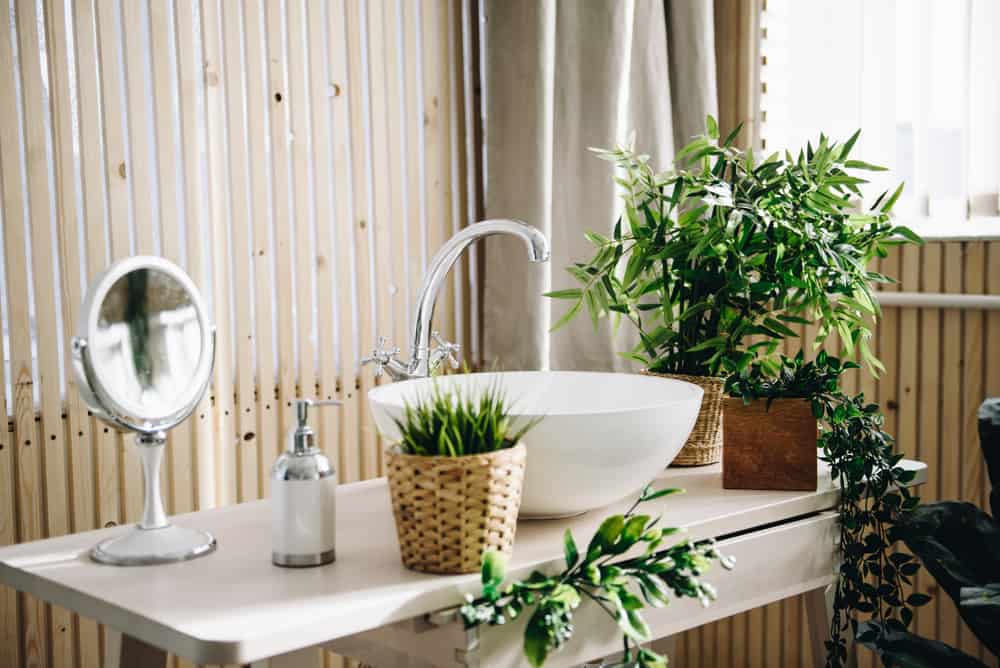Making the perfect garden is a process that’s time-consuming, but rewarding. You have to decide which plants to include, where to place them, and then regularly nurture them to keep the plants healthy.
That’s why it’s so frustrating when animals wander in and ruin all that hard work.
Of course, the animals don’t know that they’re ruining a well-tended garden. They are simply following their basic instincts, which means they have to find places to eat and locate shelter.
For many species, gardens satisfy both of these needs.
To make things more complicated, some creatures are beneficial to a garden’s overall health. Just as they preserve the ecosystem in nature, the species that make themselves at home in your hard will fill their own ecological niche.
But how can you make your garden animal-proof?
There are a multitude of ways to keep the critters out of your garden. These methods are efficient, easy, and most importantly, safe for both you and the animals.
Let’s talk about the following animals:
- Ants
- Birds
- Cats
- Chipmunks & Squirrels
- Deer
- Rabbits
- Raccoons
Page Contents:
How to Get Rid of Ants
Ants do more to help a garden than one might realize. They eat other insects that would otherwise eat the plants in a garden, aid in the pollination of flowers, and add nutrients to the soil.
Of course, ants are also a source of food for other pests. And if a colony is large enough, expect several unsightly anthills popping up in your yard or garden.
Some species, like carpenter ants, might even use your garden as a starting point to infest your entire house.
If you want to get rid of ants but are hesitant to try pesticides, consider using spices or scented objects. Ants can’t stand the smell of things like mint, lavender or cinnamon, so sprinkling some around your garden is a good way to keep them out of your garden.
Boiling water is another way to kill ants, and is particularly useful if you spot anthills. Once the water is boiled, simply dump it on the anthill: the water will work its way through the tunnel systems and kill any ants inside.
Be aware that this method may take several attempts to work, as the goal is to try and drown the queen ant. Also try to avoid splashing any water on yourself, since this method puts you at risk of burning yourself.
How to Get Rid of Birds
While most people wouldn’t think of birds as a pest, gardeners might see things differently. If a garden includes berry bushes or crops, many bird species will view the garden as an easy source of food.
Birds might also make their nests in bushes or trees, which makes removing them more difficult if they have hatchlings to take care of.
To deter birds from a garden, try hanging reflective tape. The tape reflects sunlight and causes a glare, which disorients birds while they’re flying. Line it around your garden to keep the birds away.
Another option is placing a fake predator in the area. If you’ve ever seen a plastic owl or hawk in someone’s yard, this is what they’re used for. Some models even include sound chips that recreate the screeches of these predators, which will alarm birds and frighten them away.
And if you grow crops in your garden, you can always go with the tried-and-true scarecrow method to keep any wayward birds from eating your vegetables.
How to Get Rid of Cats
Cats are more difficult to deal with since they aren’t really pests. You could be dealing with a feral cat, one of your neighbor’s pets, or even a pet cat of your own.
Because cats are predatory, they may leave the remains of their prey behind in your garden. If the cat trusts you, it might leave its kills as a “present” for you.
And of course, nobody wants their neighbor’s pet making a mess of their property.
If cats are strolling through your garden, line the ground with objects like sticks or pine cones. Cats like to walk on soft ground, and the rough surface will force them to walk elsewhere.
Citrus fruits and coffee grounds give off a strong odor that cats dislike. Placing these around your garden will also keep any wayward cats away.
If you’re a cat owner and your furry friend is the one making a mess of things, consider building a catio. This a simple outdoor enclosure that allows your cat to play outside, while also keeping them away from your garden.
How to Get Rid of Chipmunks & Squirrels
These troublesome rodents are a regular source of grief for many gardeners. Chipmunks and squirrels have a habit of digging up seeds and plant bulbs for food, and they’ll also dig plenty of holes to store food for the winter.
While squirrels make their nests in trees, chipmunks prefer to make underground burrows. Their burrowing usually leads to vegetation damage and unsightly holes dotting your yard or garden.
Because the two species have a strong sense of smell, they are sensitive to objects like garlic or spices. Sprinkling some in and around your garden will keep them from poking around your plants.
Predator urine is another useful item. Spraying some around your yard simulates the presence of a large predator, which will encourage squirrels and chipmunks to either hide or move elsewhere. Regular applications are recommended for maximum effect.
Please note that if you live in an area with predatory animals (coyotes, bobcats, foxes, etc.), then this method may inadvertently attract them to your yard.
How to Get Rid of Deer
When compared to the other animals on this list, deer pose a unique challenge. Aside from uprooting plants when they eat, deer might also trample over your garden as they pass through.
Fences can only keep them out for so long. White-tailed deer are capable of jumping 9 ft high, far taller than the average garden fence. And because of their large size (many species weigh hundreds of pounds), they could simply break through a fence if they wanted to.
Fortunately for gardeners, deer are very skittish. This can be exploited to keep them out of any garden or yard.
Sprinkling predator urine around your yard works just as well on deer as it does on smaller animals. Because deer are targeted by larger predators, consider using the urine of wolves, bears or mountain lions.
Certain plants can be another natural repellent. While deer are attracted to the scent of certain plants, they’ll immediately stop eating if they don’t like the texture.
Plants that deer dislike include bluebells, daffodils, lavender flowers, and boxwood shrubs.
How to Get Rid of Rabbits
If you grow vegetables, then rabbits are especially troublesome. They eat a variety of vegetables, and if no vegetables are available, they’ll simply munch on flowers or other plants in the garden.
If you suspect rabbits have been in your garden, place a wire fire around the perimeter. Ideally, the fence should be buried at least 6 inches deep in order to keep the rabbit from digging underneath.
Predator urine and fake owls are equally effective on rabbits, too. Rabbits are a food source for many carnivores, and they won’t risk living in an area with a seemingly large amount of predators. Rubber snakes are another option, since snakes regularly hunt rabbits.
Similarly, blood meal will terrify any rabbits in the area. Blood meal is a powdery substance made of dried animal blood, and to a prey animal, the smell of dried blood means that a predator made a kill recently.
How to Get Rid of Raccoons
While raccoons are known to scavenge human garbage for an easy meal, they still prefer eating fresh food. They are omnivores, which means they’ll eat anything from fruits and vegetables to insects and small animals.
If you have a bird feeder in your yard, they won’t hesitate to pilfer some bird seeds, either.
Raccoons are remarkably intelligent, and are known to be adept at problem-solving. For example, if you were to put up a fence around your garden, they would simply climb over it or find a way underneath.
The best way to scare raccoons away is to catch them by surprise.
Set up motion-activated lights around your yard. Because raccoons are nocturnal animals, the sudden burst of light will startle them. Motion-activated noise makers work for the same reason.
If raccoons are attracted to the scent of your trash, consider keeping trash bins inside until garbage day. This will deprive the raccoons of an easy source of food. To keep them from eating any plants in your garden, use any of the aforementioned scented objects (citrus, garlic, blood meal, etc.) to repel them.

